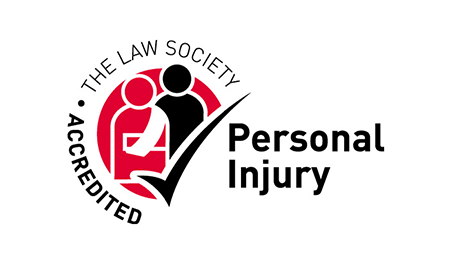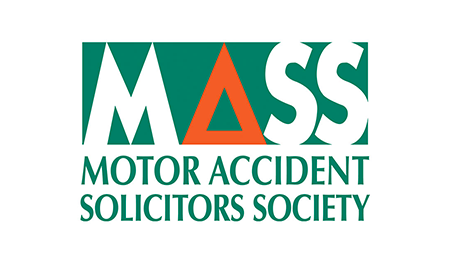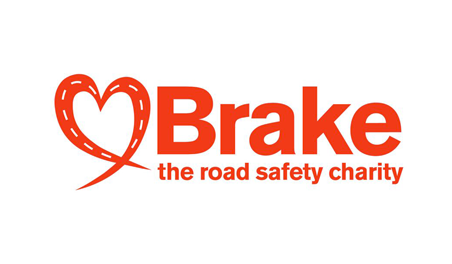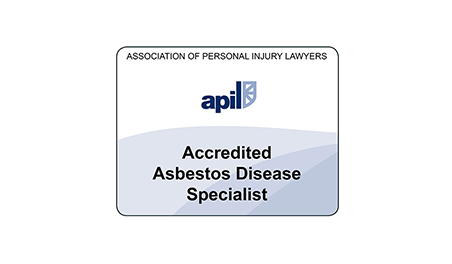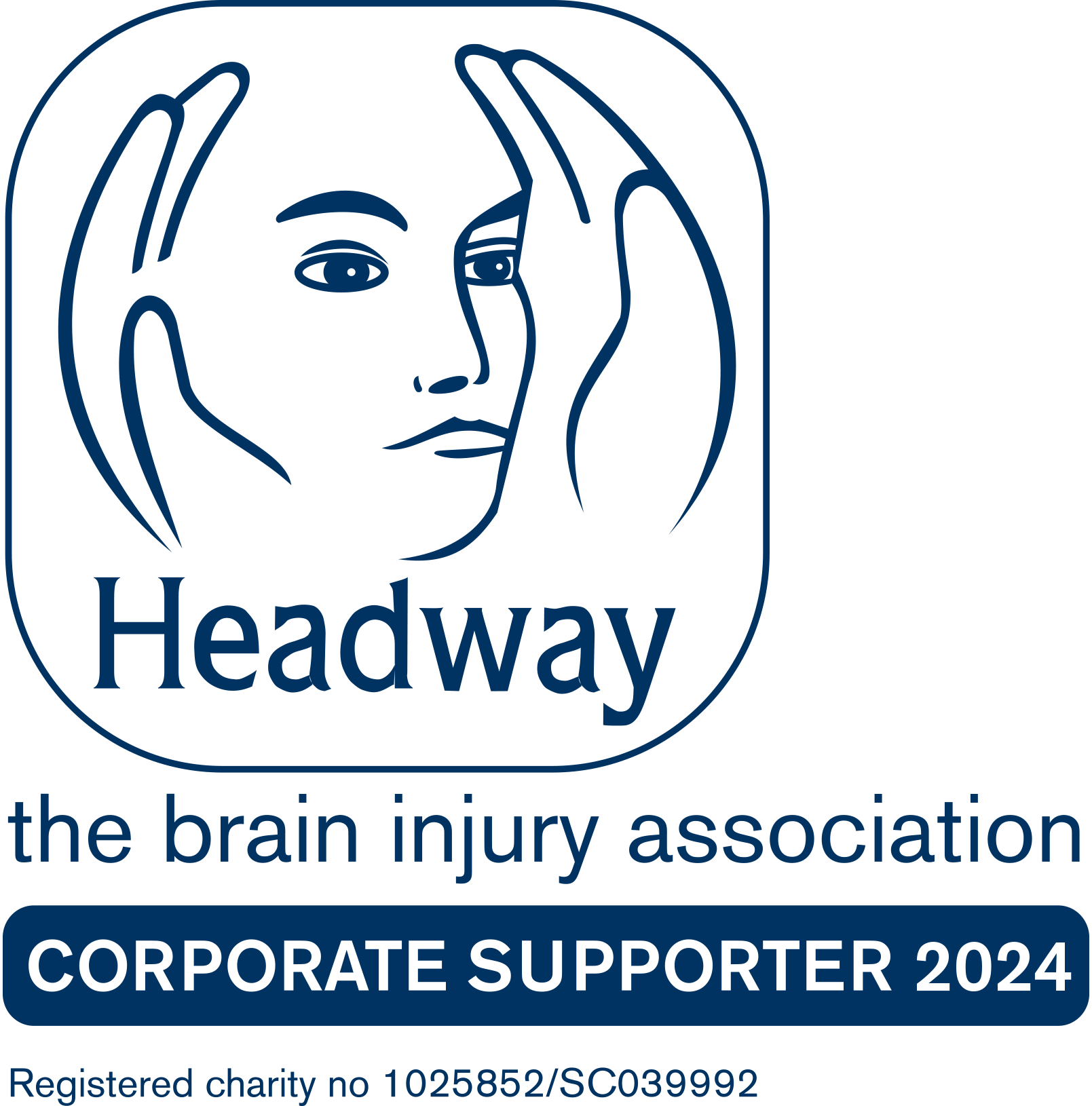Cauda Equina Syndrome Claims: Finding the Right Solicitors
Imagine yourself in the midst of intense back pain that touches the bottom limit of your endurance, only to find out later through a medical professional that your condition displays signs of being far more serious than you initially thought. This could be a dire reality for many individuals who suffer from Cauda Equina Syndrome (CES) – a rare condition that hides a core of considerable weakness. It can have a lasting cost on your mental and physical health, making it imperative to seek compensation when necessary. The crucial step involves identifying the right solicitors to handle your Cauda Equina Syndrome claim. It can feel like searching for a needle in a haystack; but fear not, by reading this blog post, we’ll guide you through the important considerations and key factors, guiding every patient diligently, ensuring that you have the best possible team advocating for your rights and providing you with the expert advice you need.
A solicitor who specialises in Cauda Equina compensation claims can assist a patient by providing legal representation and advice throughout the claims process. They can help you gather evidence, negotiate with insurers, and ensure that you receive the compensation you deserve for your injuries. This can significantly reduce the costs of dealing with the aftermath of a CES diagnosis. Additionally, they can provide emotional support and guidance during what can be a difficult and stressful time. At leading law firm MRH Solicitors, our experienced team has handled a broad range of Cauda Equina Syndrome claims across England and Wales, so clients know they are in safe hands in their quest for justice.
Cauda Equina Syndrome Explained
The cauda equina is a group of nerves located at the base of the spinal cord. When these nerves are compressed, the condition known as cauda equina syndrome (CES) occurs. CES is a serious medical emergency that requires immediate diagnosis and treatment to avoid permanent nerve damage, long-term complications, and to counteract the crippling weakness it can cause.
A man in his thirties took the step to seek medical help when he, who had always been otherwise healthy, experienced sudden and severe lower back pain just after lifting some furniture. He initially thought it was nothing, but signs of a more serious issue appeared within hours when he began to lose feeling in his legs. It turned out that he had CES – the compression of his nerves had caused him to lose sensation in his lower extremities, and without delay, he required emergency surgery.
CES symptoms display a vast range depending upon the severity of nerve compression, but they often include key signs such as:
– Loss of sensation or circulation in the legs and feet
– Inability to move the legs or feet
– Problems with urination or bowel movements
– Numbness around the buttocks, anus, or groin
– Severe pain in the lower back or legs that gets worse over time
If you experience any of these symptoms, it’s critically important to seek immediate medical attention right away.
There are various causes of CES, including spinal tumours, herniated discs, spinal stenosis, physical trauma, and medical negligence, each carrying its own cost. While it can be caused by an accident, it can also be caused by anything that results in compression or injury to the nerves. This can include surgical mistakes during spinal surgery, failure to diagnose disc herniation or tumours, and delays in care, among others.
Understanding the risks and symptoms associated with CES goes a long way towards getting the necessary treatment to avoid further complications. Let’s take a further step and explore more related risk factors and symptoms next.
- Cauda equina syndrome (CES) is a serious medical emergency caused by the compression of nerves at the base of the spinal cord. Symptoms can range from loss of sensation to severe pain and require immediate diagnosis and treatment to prevent permanent nerve damage. If you experience any symptoms related to CES, seek medical attention right away. There are various causes of CES, including physical trauma and medical negligence, so understanding risk factors and symptoms is crucial for prompt treatment and better outcomes.
Symptoms & Risk Factors
While anyone can develop CES, certain risk factors can make it more likely.People who experience lower back pain frequently, have a history of spinal problems such as herniated discs, or have had spinal surgery in the past may be at greater risk for CES. A notable case in the UK, for instance, involved a woman in her mid-40s who consulted her local office of general practitioners under these exact circumstances.
The woman, who had a long history of lower back pain, was eventually diagnosed with CES after experiencing bladder and bowel incontinence. An investigation using an MRI showed that she had a significant spinal cord compression which required emergency surgery. However, the timeline was not as swift as it should have been; negligence took place like a slowly closing canal, blocking the flow of timely treatment.
The symptoms of CES can vary widely depending on the severity and duration of nerve compression. Some people may only experience mild numbness or tingling in their legs, while others may develop complete paralysis and loss of bowel and bladder control. The consequences vary drastically, but each is severe in its own right.
Left untreated, CES can lead to permanent nerve damage, sexual dysfunction, and loss of mobility. That’s why prompt medical care is critical when symptoms arise. State of health can fray and be permanently damaged, much like the aftermath of a storm causing damages to a bundle of fragile items.
Aside from spinal problems and prior surgery, other factors that may increase the risk of CES include traumatic injuries to the lower back, infections such as meningitis, autoimmune disorders such as lupus or rheumatoid arthritis, and certain medications or medical treatments that affect bone density.
It’s important to note that while some instances of CES are caused by accidents or physical trauma, others may be the result of medical negligence. If a doctor or healthcare provider fails to diagnose or treat a patient’s spinal cord compression in a timely and effective manner, they may be held liable for any resulting harm.
Think about it like a ticking time-bomb; if left unchecked, more permanent damage could occur. Similarly, negligence in medical contexts can have devastating consequences.
Now that we’ve covered the risk factors and symptoms associated with CES, let’s move onto pursuing claims for this condition, particularly in cases where negligence has occurred.
Treatment & Recovery
Cauda Equina Syndrome (CES) is a medical emergency that requires prompt diagnosis and treatment to avoid permanent damage. The treatment for CES primarily involves spinal decompression surgery, which relieves the pressure on the cauda equina nerve roots. The goal of the surgery is to allow for the return of normal function to the bladder, bowel, and lower extremities.
However, CES recovery is a long process that can be unpredictable, and it depends on several factors, including the severity of CES at the time of diagnosis, the extent of nerve damage caused by compression, and how quickly surgery was performed. Patients recovering from CES may face many challenges, both physical and psychological, including paralysis, chronic pain, incontinence, and sexual dysfunction.
Early surgical intervention is vital for CES patients. A delay in surgery can cause lasting damage to the cauda equina nerves and result in permanent disability. After surgery, patients will require physical therapy and rehabilitation programmes to regain their strength and mobility.
The effects of CES can be life-changing. Even with proper medical care and rehabilitation, patients may never fully recover from CES. They may have difficulty performing daily activities such as walking or sitting for extended periods. As the reality of their circumstances sinks in, patients can also experience depression or anxiety related to their condition.
While there is no cure for CES or a definitive timeline for recovery, ongoing support from medical professionals and mental health specialists can help patients manage their symptoms effectively. Life with CES is a difficult path, but with the right help and careful management, patients can lead a more comfortable life.
When someone suffers from CES due to medical negligence or other preventable causes like a severe car crash or workplace accidents, they may seek legal action against those responsible parties. This usually leads to a compensation claim. We delve below into each step within this process, from the initial fracture and potential infection, resulting in inflammation of organs to the eventual legal procedures.
Pursuing Cauda Equina Syndrome Claims
In medical negligence cases, claiming compensation for CES injuries as a result of negligent treatment or delayed diagnosis requires additional evidence that the claimant’s injuries were caused by a breach in the standard of care provided by the medical practitioner. These CES injuries could range from reduced sexual function to more serious ailments such as a cauda equina claim.
It is crucial to have an experienced solicitor with expertise in CES claims who can help make a successful compensation claim. Proving medical negligence is challenging, and it requires familiarity with complex laws and regulations relating to both healthcare and CES injuries.
Much like a medical team working together to diagnose and treat CES promptly, especially to prevent further complications such as infection and inflammation in the affected organs, a legal team works together to gather evidence and build a strong case for their clients seeking compensation for their injuries.
The next section will discuss what qualities to look for when choosing the right solicitor for your CES claim, which could include a cauda equina claim or a claim related to fractures caused by car crashes.
When it comes to pursuing a claim for Cauda Equina Syndrome (CES), there are two primary routes that individuals can take: medical negligence cases and claims for non-medical causes, such as injuries caused by car crashes or other accidents. Let’s first explore medical negligence cases.
Medical Negligence Cases
Medical negligence occurs when a healthcare professional fails to provide an adequate standard of care, resulting in harm, injury or worsening of the patient’s condition. Negligence in CES cases often involves misdiagnosis or delayed diagnosis, inadequate or incorrect treatment, improper surgery or surgical technique, and failure to refer appropriately.
Proving a case of medical negligence is challenging as it requires establishing that healthcare professionals failed in their duty of care and that this failure directly caused the plaintiff’s injuries. These injuries could range from a fracture sustained in a car crash or a decline in sexual function due to CES. It requires showing that the harm would not have happened if the defendants had provided a reasonable standard of care.
Medical negligence cases tend to be complex and require knowledge of both legal and medical issues. A skilled solicitor with expertise in CES claims and specific conditions such as a cauda equina claim will be able to investigate the case thoroughly and involve relevant medical experts who can help to support your claim.
It’s important to note that there are strict time limits within which a medical negligence claim must be made. Generally, claims involving adults must be made within three years from the date of injury or knowledge. It’s best to seek legal advice as soon as possible after a negligent act or omission has occurred.
Now let’s examine non-medical causes of CES claims.
Claims for non-medical causes are those that relate to accidents or incidents outside of medical care but which still result in CES injuries. These would include the damage resulting from a severe car crash or fractures sustained from a fall that leads to inflammation of organs, sexual function impairment, or even a cauda equina claim.
- In a medical negligence study, it was found that cauda equina syndrome (CES) cases made up nearly 5% of all spinal injury claims between 2012 and 2017.
- The British Medical Journal reported that the rate of successful litigation for CES cases is significantly high, with approximately 60% of CES claims resulting in settlement or judgement in favour of the claimant.
- According to a study published in the Journal of Clinical Neuroscience, more than 50% of patients still experience ongoing symptomatic relief after surgical intervention for CES, emphasising the importance of seeking legal advice from experienced solicitors when dealing with complex CES cases.
Claims for Non-Medical Causes
The most common cause of non-medical CES injuries is road traffic accidents (RTAs). In these instances, an individual’s spinal cord is damaged when they experience sudden compression as a result of impact with another vehicle. Other common ways that non-medical CES injuries can occur include falls from heights, industrial accidents, and assaults.
It’s important to note that pursuing a claim for CES outside of medical negligence requires establishing fault or liability – in other words, proving that the accident was caused by someone else’s wrongful action or inaction. In a scenario of a car crash, for instance, it would necessitate proving the other party’s fault in causing the accident that led to the CES injury.In CES claims for non-medical causes such as negligent practices negatively affecting body parts including bowels and thighs, the burden of proof rests with the injured party to show that another party was negligent and caused their injury. A skilled solicitor with experience in personal injury claims, guided by the Solicitors Regulation Authority, will be able to advise on the chances of success, the likely prognosis for the case, gather evidence, and build a case to substantiate the other party’s liability. The onset of quick, efficient legal action can greatly benefit the injured party’s claim.
When it comes to road traffic accidents, it’s important to report the incident as soon as possible and ensure that all relevant details, inclusive of the impacts on your body, are recorded – the name and address of each driver involved, registration numbers and insurance information should be noted down. If possible, photographs should be taken of the scene and any injuries sustained as a result.
Pursuing a claim for non-medical causes is like crossing a river – there are stepping stones that must be navigated cautiously in order to reach a successful outcome, much akin to the stages of recovery and prognosis of an injury. An experienced solicitor, registered with the Solicitors Regulation Authority, can help you navigate these stones and avoid pitfalls along the way.
Now that we’ve covered both medical negligence cases and claims for non-medical causes, let’s explore what qualities to look for in a skilled Cauda Equina solicitor.
If you are pursuing a Cauda Equina Syndrome claim, finding the right solicitor is crucial. A skilled and experienced solicitor can make all the difference in achieving the best possible outcome for your case, particularly when considering the involvement of complex regions of the body like the bowels and thighs. Here are some qualities to look for when choosing a Cauda Equina solicitor:
Experience in Cauda Equina Claims – Look for solicitors who have handled cases similar to yours in the past. Cauda Equina Syndrome claims demand specialized knowledge and expertise that not all personal injury lawyers possess. Given the critical nature of the case, you don’t want to be someone’s guinea pig, so do your due diligence and research potential solicitors.
Qualities of a Skilled Cauda Equina Solicitor
Proven Success Record – While experience is important, it’s not enough. You also want to ensure that your potential solicitor has a successful track record of settling or winning cases similar to yours. This information should be available on their website or by asking for references/reviews.
Understanding Medical Terminology and Procedures – Solicitors handling Cauda Equina claims should have a solid grasp of medical terminology, specifically showing understanding of the onset and prognosis of conditions. They should understand the procedures involved in diagnosing and treating this condition to better represent their clients’ interests. But that’s not all. Being sympathetic and listening carefully to clients can help strengthen their arguments and lead to more effective resolutions of cases.
Detail-Oriented Approach – There are many details that go into building a strong case, including gathering relevant evidence such as medical records, employment history, etc. A skilled solicitor should pay attention to even the smallest details as they might be crucial in establishing causation between the client’s symptoms and a specific cause.
Understanding Medical Terminology and Procedures – Solicitors handling Cauda Equina claims should have a solid grasp of medical terminology. They should understand the procedures involved in diagnosing and treating this condition to better represent their clients’ interests. But that’s not all. Being sympathetic and listening carefully to clients can help strengthen their arguments and lead to more effective resolutions of cases.
Detail-Oriented Approach – There are many details that go into building a strong case, including gathering relevant evidence such as medical records, employment history, etc. A skilled solicitor should pay attention to even the smallest details as they might be crucial in establishing causation between the client’s symptoms and a specific cause.
Now that we have explored some qualities of a skilled, trustworthy and reliable Cauda Equina solicitor, let’s move on to discuss another important quality – experience and case success.
Experience and Case Success
When choosing a solicitor to represent you in your CES claim, it’s important to look for certain qualities:
Experience is key when it comes to selecting a solicitor. Look for someone who has handled many cases similar to your own and has a strong track record of success. This will ensure that they understand the complexities involved in your case and can provide you with the best possible service.
While experience is important, it’s not the only factor to consider. You should also look for a solicitor who is approachable, friendly and easy to talk to. A good solicitor will listen carefully to your story, empathise with your situation and provide clear, straightforward advice.
Qualified solicitors should hold relevant accreditations that demonstrate their expertise in CES claims and personal injury litigation. Accreditation by professional bodies such as the Association of Personal Injury Lawyers (APIL), the Motor Accidents Solicitors Society (MASS) or The Law Society’s Specialist Personal Injury Accreditation Scheme is an indication that the solicitor has met high standards of legal expertise.
Finally, it’s important to choose a solicitor who works on a no-win-no-fee basis. This means that if the claim is unsuccessful, you won’t have to pay any legal fees. Additionally, choosing a solicitor who has strong links with relevant support groups like Headway or Brake can provide additional assistance and information throughout the claim process.
Now that we’ve explored the qualities of a skilled Cauda Equina solicitor, let’s discuss how to find and choose one.
Solicitor Accreditation
Experience is key in handling Cauda Equina Syndrome claims. There are many nuances to these types of cases that only experienced solicitors can navigate easily. When considering a potential solicitor, here are some things to look for:
Knowledge of the Legal Process – An experienced solicitor will understand the legal process backward and forwards. This knowledge allows them to better negotiate on behalf of their clients and build a stronger case to take before a judge or into settlement negotiations.
Previous Case-work – The most important measure of a solicitor’s qualifications is their past record of success. Look for solicitors who have handled similar Cauda Equina Syndrome cases with positive outcomes, such as settlements or successful verdicts.
Determination – A skilled personal injury lawyer will be doggedly determined in pursuing compensation for their clients. They should never give up easily, always thoroughly exploring all possible options on behalf of their client.
Connexions to Experts – Experienced solicitors often have established relationships with medical experts and consultants who can help strengthen their client’s cases. These connexions help ensure that clients receive top-notch medical evaluations that accurately reflect their symptoms and supporting opinions when necessary.
Professionalism – Professional conduct is critical when representing clients who have sustained severe injuries such as those associated with Cauda Equina Syndrome. Quality representation will require respect, tact, appropriate communication, and sensitivity towards each client’s situation.
How to Find and Choose a Cauda Equina Solicitor
When it comes to finding a skilled CES solicitor, there are several steps you can take:
– Ask for recommendations from friends or family members who have undergone similar experiences
– Look online for firms specialising in CES claims – check out reviews and ratings from previous clients and look for accreditations
– Check with support organisations like Headway or Brake for recommendations
– Ensure that the solicitor offers free initial consultations – this will allow you to get a better idea of whether they are right for you before committing.
Once you have narrowed down your list of preferred solicitors, it’s important to ask the right questions to ensure that you are comfortable with your choice. Some key questions to consider include:
– How much experience do you have in handling CES claims?
– Have you handled cases similar to mine before?
– What is your success rate in CES claim cases?
– Are you accredited by any professional bodies?
– Do you work on a no-win-no-fee basis?
– What is your approach to communication throughout the claim process?
Asking questions like these will help you to get an idea of the solicitor’s expertise, experience and ability to communicate effectively. This can ensure that you select a solicitor who provides compassionate, effective representation while prioritising your needs.
When making your final selection, always choose a solicitor with whom you feel comfortable and confident. Keep in mind that this individual will be representing you throughout a potentially long and complex legal process.
By following these steps, performing due diligence and selecting a skilled Cauda Equina solicitor, those who have suffered from CES can take proactive steps towards securing the compensation and support they need to recover from their injuries.



